- Faculty of Engineering
- Department of Electronics and Computer Engineering Department of Electrical Systems Engineering Department of Mechanical Systems Engineering Department of Intelligent Mechanical Engineering Department of Civil and Environmental Engineering Department of Architectural Engineering
- Faculty of Applied Information Science
- Department of Computer Science Department of Information and Communication Department of Information Systems and Management
- Faculty of Environmental Studies
- Department of Architectural Design Department of Global Environment Studies
- Faculty of Life Sciences
- Department of Clinical Engineering Department of Food Sciences and Biotechnology
- Graduate School
- Major in Intelligent Structure and Functional Science Major in Electrical and Electronic Engineering Major in Mechanical Systems Engineering Major in Civil and Architectural Engineering Major in Information Systems Science Major in Environmental Studies Major in Biological and Biomedical Engineering
Faculty of Life Sciences
Department of Clinical Engineering
- Department Introduction
- Education and Research Areas
- Subject Introduction
- Curriculum
- Careers and Further Study
- Department Introduction MOVIE
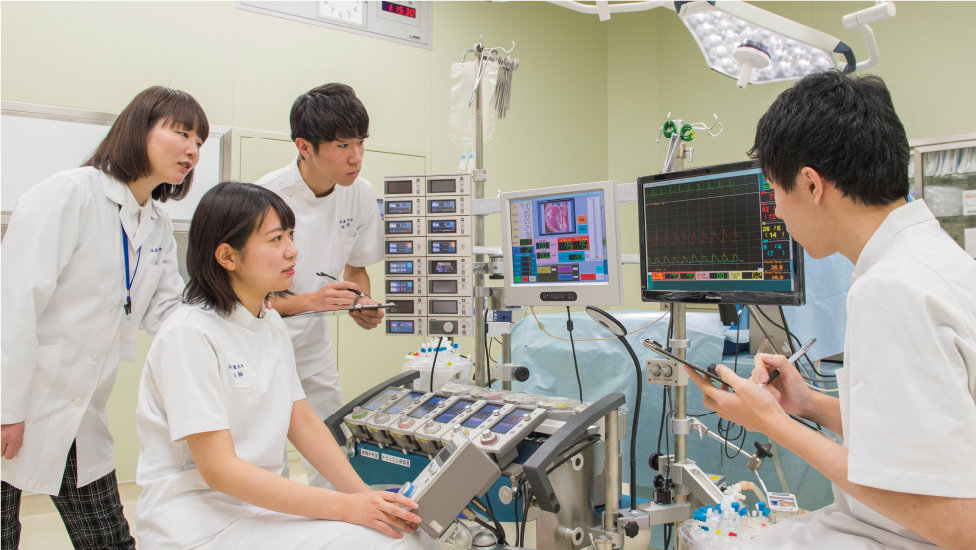
Producing clinical engineers capable of dealing with state-of-the-art medical technology.
In medical settings there is a real need for clinical engineers equipped with the engineering expertise to guarantee medical equipment safety. The Department of Clinical Engineering cultivates graduates who can function as clinical engineers within a medical team, providing clinical support for the operation, as well as maintenance, inspection and management, of key equipment, and who can function as motivated and responsible medical professionals equipped with a high level of specialized knowledge enabling them to work in advanced care.
Education and Research Areas
-
Medical Therapeutic Equipment
Students study the principles and structure of medical therapeutic equipment which applies a variety of physical energies directly to the body for therapeutic purposes, and they learn the mechanisms of action involved in producing therapeutic effects.
-
Bioinstruments
Biological information encompasses a variety of electrical/mechanical (physical) signals and other types of data. Students will become familiar with biological information measurement principles and structures, as well as measurement methods and proper handling.
-
Medical Safety Management
Students are familiarized with medical device operations-related precautions and medical environment risk factor detection, evaluation and control system safety and orthodox procedures.
-
Medical Information Systems
Students undertake practical training in medical system software structure and operations-related system design, data security, microcomputer programming and other areas.
Subject Introduction
-
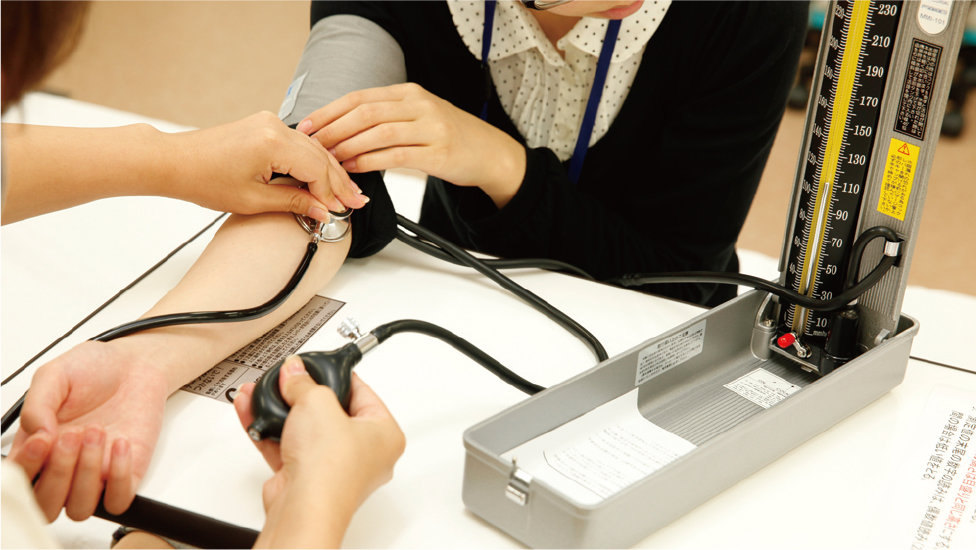
Basic Medical Practical Training
In order to deepen students’ structural, functional and morphological understanding of essential biology, anatomy and pathology when working as medical staff, they engage in practical learning which incorporates microscopy, heart rate measurement, blood pressure measurements and other tasks.
-
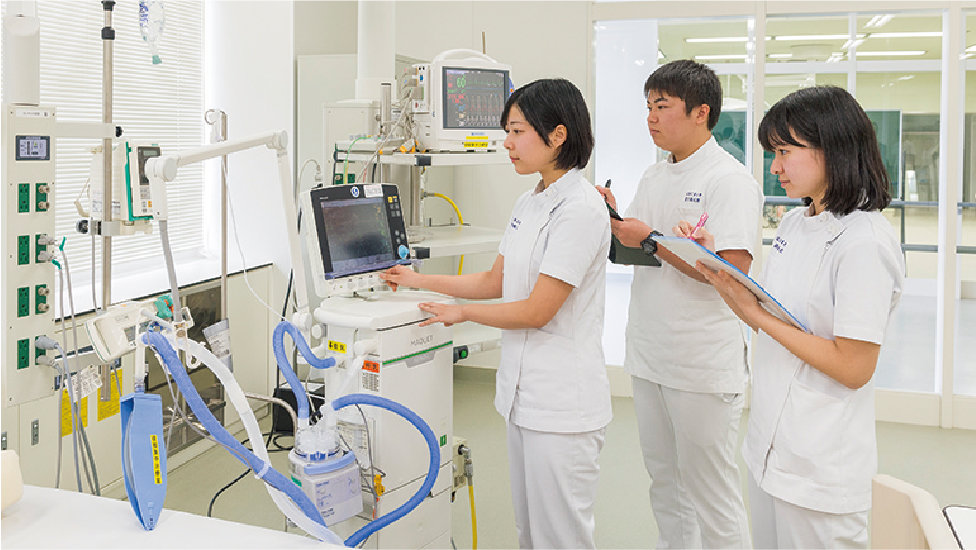
Biofunctional Devices
Through the use of basic respiration, circulation and metabolism-related experimentation, and the operation, maintenance and management of respiratory therapeutic devices, extra-corporeal circulation devices and blood purification devices, students are familiarized with the operation, maintenance and management of respiratory, circulatory and blood purification technology.
-
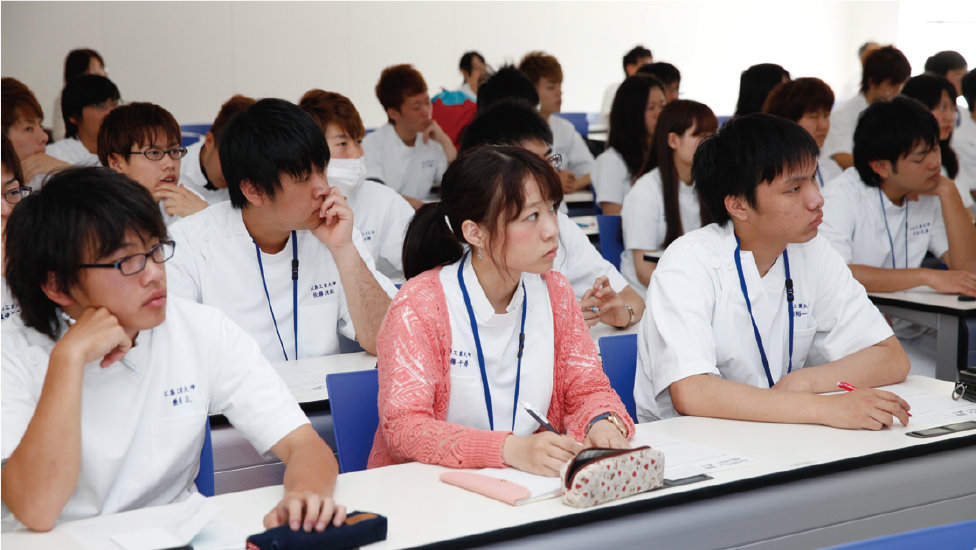
General Clinical Medicine
Courses equip students with medical knowledge indispensable to clinical engineers. They will engage in comprehensive study to acquire specialized knowledge about a variety of disorders in a wide range of areas, including not only internal medicine and surgical medicine but also the respiratory system, kidneys/urinary system and blood/circulatory system.
-
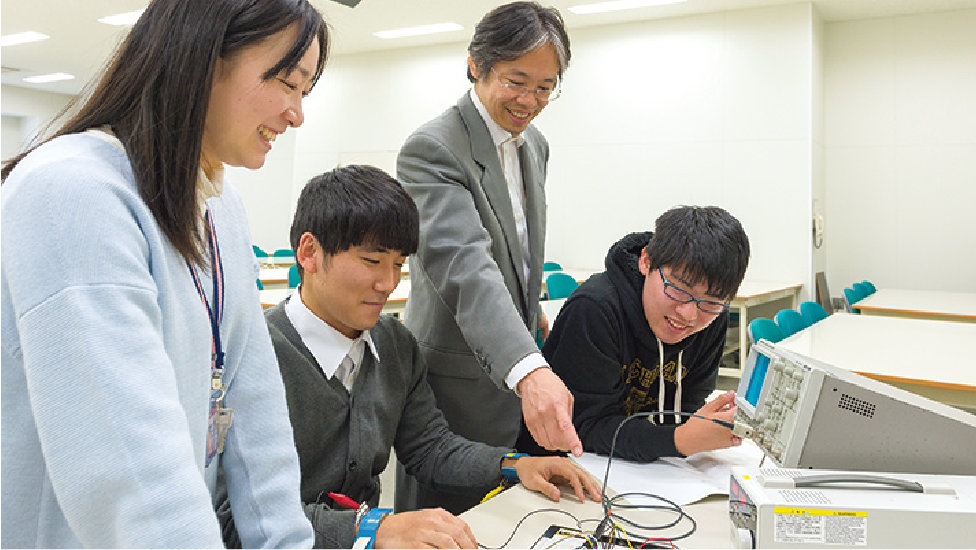
Medical Instrumentation Engineering Practical Training
Students will gain a deeper understanding of the basic principles and structure of medical devices, including electrical and electronic circuit and sensor characteristics, by personally assembling and operating electrocardiographs, clinical thermometers, arterial pulse wave detectors and other medical devices.
-
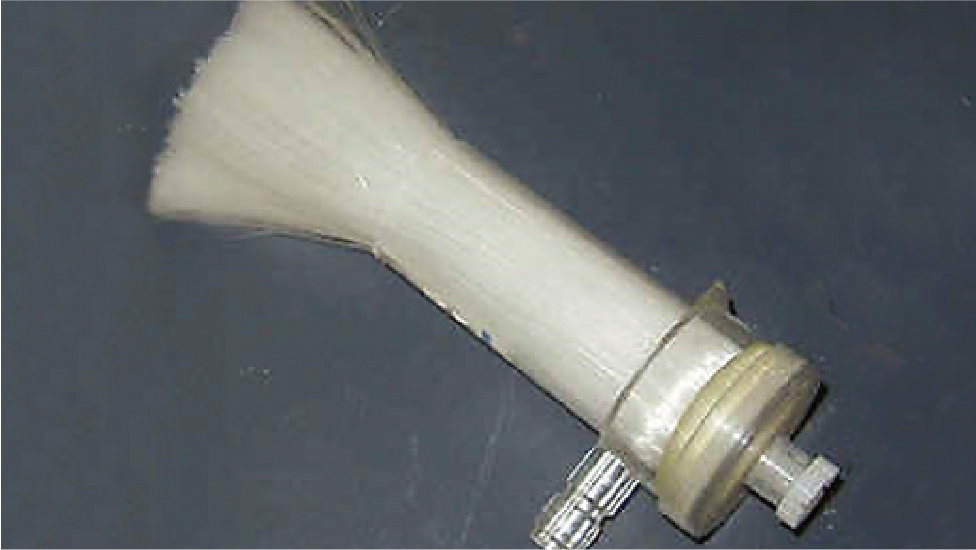
Artificial Organs
Students will gain a deeper understanding of how biological functions are simulated through mimicry of everything up to and including the body's driving mechanisms (e.g., pulsation-type artificial hearts), as well as through the use of different mechanisms (e.g., axial flow-type artificial hearts, artificial kidneys).
Curriculum
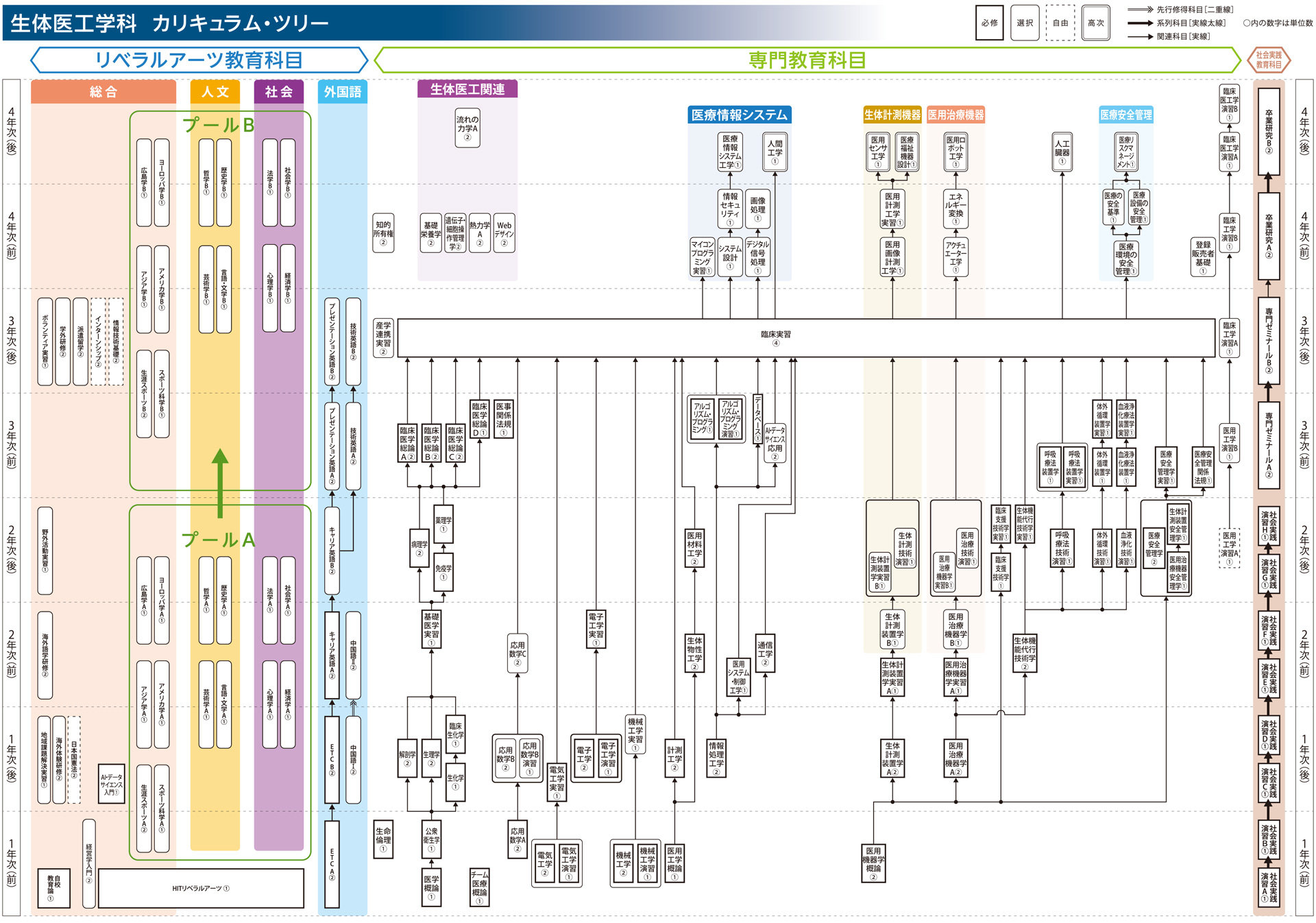
Japanese only






